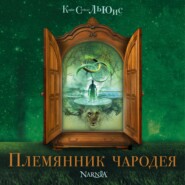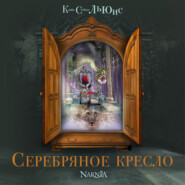По всем вопросам обращайтесь на: info@litportal.ru
(©) 2003-2025.
✖
Collected Letters Volume Three: Narnia, Cambridge and Joy 1950–1963
Настройки чтения
Размер шрифта
Высота строк
Поля
(#ulink_7dd84d48-4c11-5e06-bd54-59bcb9414fc3) has accompanied me through all the stages of my pilgrimage: it and the Aeneid (which I never feel you value sufficiently) are the two long poems to wh. I most often return.
The tension you speak of (if it is a tension) between doing full & generous justice to the Natural while also paying unconditional & humble obedience to the Supernatural is to me an absolute key position. I have no use for mere either-or people (except, of course, in that last resort, when the choice, the plucking out the right eye, is upon us: as it is in some mode, every day.
(#ulink_50c37abd-eafd-5a10-a60c-36493ff91fb6) But even then a man needn’t abuse & blackguard his right eye. It was a good creature: it is my fault, not its, that I have got myself into a state wh. necessitates jettisoning it).
The reason I doubt whether it is, in principle, even a tension is that, as it seems to me, the subordination of Nature is demanded if only in the interests of Nature herself. All the beauty of nature withers when we try to make it absolute. Put first things first and we get second things thrown in: put second things first & we lose both first and second things.
(#ulink_8e4ce69f-f88b-5812-9acc-bcf82ead9dc0) We never get, say, even the sensual pleasure of food at its best when we are being greedy.
As to Man being in ‘evolution’, I agree, tho’ I wd. rather say ‘in process of being created’.
I am no nearer to your Church than I was but don’t feel v. inclined to re-open a discussion. I think it only widens & sharpens differences. Also, I’ve had enough of it on the opposite flank lately, having fallen among—a new type to me—bigoted & proselytising Quakers! I really think that in our days it is the ‘undogmatic’ & ‘liberal’ people who call themselves Christians that are most arrogant & intolerant. I expect justice & even courtesy from many Atheists and, much more, from your people: from Modernists, I have come to take bitterness and rancour as a matter of course.
I might get down to see you some time this year. No chance of your visiting Oxford?
Yours always
C. S. Lewis
TO WARHELD M. FIROR(BOD):
Magdalen etc.
23/4/51
Dear Firor
I guessed what response my news would elicit from your friendly heart and awaited it with mixed pleasure and pain: pleasure because your amazing good will (I am still puzzled as to how I acquired it) is always as cheering as a bright fire on a winter day, pain because I cannot respond as you wd. wish. I have seized my new freedom to get that infernal book on the XVIth Century done, or as nearly done as I can. The College is giving me a year off to do it, but the work can be done only in England, and much less ambitious holidays than a jaunt to America will serve my turn.
I am not naturally mobile. But you are. Is there no chance of seeing you in England? (Not, of course, in connection with this idiotic ‘Festival’
(#ulink_2059b980-cc63-5adf-bf00-977fb14e0a6e) of which I and some others are heartily ashamed—such untimely nonsense!)
And now to business…I feel twice the man I have been for the last ten years. God bless you.
Yours
C. S. Lewis
TO COLIN HARDIE (P):
(#ulink_e092a7cf-5e7e-5fa3-91a2-f76c029791d0)
24/4/51
Dear Colin—
This is even more exciting than Oedipus.
(#ulink_5843aa8d-7130-52c4-9d67-c2b95f4b4477) The excessive length comes from the intrusion of matter relevant & interesting for the history of Greek religion but not, or not so much, for the Christian interpretation of reviving Gk. Myths. Unfortunately you are so concatenated & sagacious that v. few of the bits I want removed come away quite clean. Amputation, especially in another man’s work, is v. dangerous, so the following lists of delenda must be treated as tentative, and if you accept all or any of them you must then go carefully through what is left to remove ‘fossils’. They are
Dele
(#ulink_58dfc022-3810-586c-98d9-096797d3e396) on p3 from It is the presupposition to Trojans raw from At this point (5a) to types of character (5e) from who formed a guild (9) to and unity (10) from Groups of three (11) to or under earth (12) from Professor Rose, thinking (12) to human history (15) from We have seen (16) to of sacrifice (17) from To the Aegean peoples to where they could (19) Then go to ‘The Greeks, unlike the Aegean peoples, allowed the idea’ etc. from The Greek idea (2) to always disbelieved (21) from In popular theology (24) to from matter (25)
Most, if not all, of these I shall be sorry to lose. But, as Ridley sagely remarks, the business of a cutter is to cut.
(#ulink_05bf2e1f-8d2d-5d4a-ab15-da3779e9174b) You cd. expect from me only one of three things: a refusal to cut, a recommendation to cut passages because they were bad, or a recommendation to cut passages although they were good. You’ve got the third wh. is presumably what you’d prefer.
I do long to see all this out in book form where you have elbow room, for I really think it is some of the most important work that is being done in our time. I think I told you before of the advice wh. old Macan
(#ulink_ebea3a1d-7d9e-534f-8a1e-ce46b74aa8c2) gave me long ago ‘Don’t put off writing until you know everything or you’ll be too old to write decently’
It must be fun being you.
Yours
Jack
TO MARY VAN DEUSEN (W):
Magdalen College
Oxford
30/4/51
Dear Mrs. Van Deusen—
No, the ‘different trouble’ is not an illness, or not an illness of mine. I could hardly tell you of it without a breach of confidence.
My holiday was only in a hotel, but in my old country & near the house of an old friend.
My prayer for Genia (an interesting name, by the way) cd. not naturally take the form you suggest. A little too schematic for my habits: and, to tell you the truth, a little bit like giving God a lecture on Theology!
As to MacArthur, I don’t feel in a position to have clear opinions about anyone I know only from newspapers. You see, whenever they deal with anyone (or anything) I know myself, I find they’re always a mass of lies & misunderstandings: so I conclude they’re no better in the places where I don’t know.
Nations being ‘friends’ is only a metaphor: they’re not people, and their co-operation depends, alas, on professional politicians & journalists whom you & I can’t control.
In fact, as you see, I’m a terrible sceptic about all public affairs. I am inclined to think that your Mac A and our Montgomery are specimens of a new, dangerous, & useful type thrown up by the modern situation–but it’s only a guess.
In haste. God bless you all.
Yours
C. S. Lewis
TO THE EDITOR OF ESSAYS IN CRITICISM

















